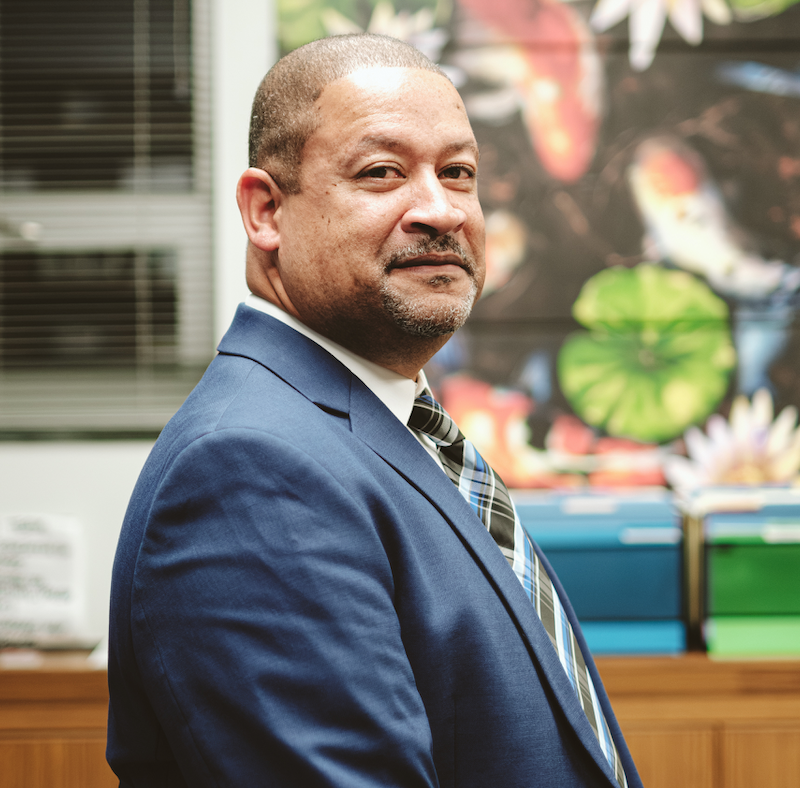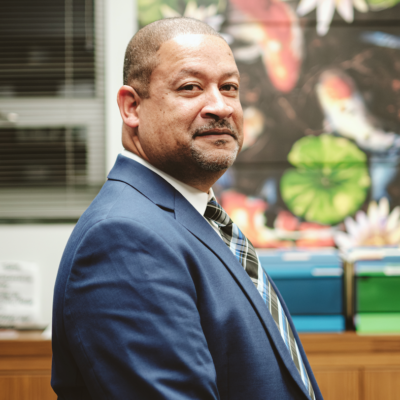December 12 is the last day for Noah Schwartz, executive director of the Charlottesville Redevelopment Housing Authority (CRHA). After three years at the agency, he is leaving the area to jump back into the nonprofit world working for a company that “does things I’ve done in the past.” Schwartz’s resignation is one more dent into the agency’s tumultuous history—he is the fourth director since 1999. The immediate predecessor to Schwartz, Paul Chedda, was fired by the CRHA Board after only nine months on the job.
C-VILLE: Why did you decide to leave?
Noah Schwartz: There are a lot of reasons. But mostly, I am just worn out. I can’t point to a resident, I can’t point to the Board, I can’t point to a local politician, I can’t point to anything and say, ‘That’s why.’ My leadership style is that I am a hands-on, high-energy, what-can-we-do-to-get-this-fixed, I-am-not-offended-by-screwing-up- because-it-happens, we-are-going-to-be-better kind of guy. It’s hard to put that out and it’s been seven years.
|
Noah Schwartz says he is proud of the job he and his staff have done, but "it’s time for me on a personal level to do something a little bit different." |
We are so close to turning the corner. I know we are almost there, but it takes an energy level that I don’t have anymore. This is the hardest job I’ve ever done. I don’t feel like it’s beat me, I don’t feel that I am giving up on it, I don’t feel like I’m running away by any means, but I think it’s time for a new shot of energy, and maybe a subtle, different approach to the work. I worked really well with our residents and with our staff and we’ve accomplished a whole lot together. I am extraordinarily proud of it. It’s time for me on a personal level to do something a little bit different.
How will the agency be affected?
Change is hard when you lose your leader, there are no two ways around it. But we’ve got good managers in place, we have a Board that is trying to make the right decisions to bring in the right people, and if everybody hangs in there I really think we’ll be in a really good spot.
What will the Housing Authority have to do to get out of the “troubled” status?
A little background is helpful to understand what we will need to do. When I got here, the agency was in the “troubled” status for its management of the Section 8 [housing voucher] program. So, if we are troubled for Section 8, we are troubled for the entire agency. We have implemented a lot of things in trying to address that. We looked at how we were doing property management and we had some training done to make sure our staff was prepared. We looked at how we were doing finance reporting and we made some significant changes. We looked at technical assistance and how we managed these programs. We looked at some of the key capital items and we picked out the things that we needed to do now, and we pushed them through.
One thing that we’ll help us turn the corner is the two new positions in the maintenance department. The first one is a capital budget manager, someone who would be responsible for the budget, and now I do a chunk of it, and other people do other parts. We will have it centralized in one spot and I think it will help that. We are also hiring a maintenance manager who can prioritize our work orders, and can help with quality assurance.
What are the top five priorities for the organization?
Replacing current leadership, I think that’s the top priority. The two new positions I think are absolutely critical. Continuing to stabilize the agency and minimize turnovers—we’ve got great people here and we want to keep them. Our financial situation, which isn’t getting any better, is something that, whether it’s through redevelopment, or whether it’s through other sources, we’ve got to look at.
What is your relationship with the residents?
On a personal note, I get along great with the residents. I’m on site all the time, and before, I was the executive director of MACAA, the local anti-poverty agency, and I know a lot of our residents from that. People already knew who I was, they knew what I was all about. I think we worked very, very hard to make them a big part of what we do here. Is it perfect? No. But you’ll always have residents who are unhappy, and again, we want it to be better, we are striving to improve it.
How different was your job at MACAA from your current position?
There is a big difference between the nonprofit world and this quasi-government world that we are in now. In the nonprofit world, the board is different, because it is a nonprofit board versus a board of commissioners. In a nonprofit board, the dynamics tend to be a little bit different, your hands are freer to make decisions. They are freer in terms of how you develop strategies to resolve any issue.
In the quasi-government world, I answer to HUD [the U.S. Department of Housing and Urban Development]: HUD says I’ve got to do this and that. It does not work for agencies our size, and HUD knows that. But you have no choice.
C-VILLE welcomes news tips from readers. Send them to news@c-ville.com.






